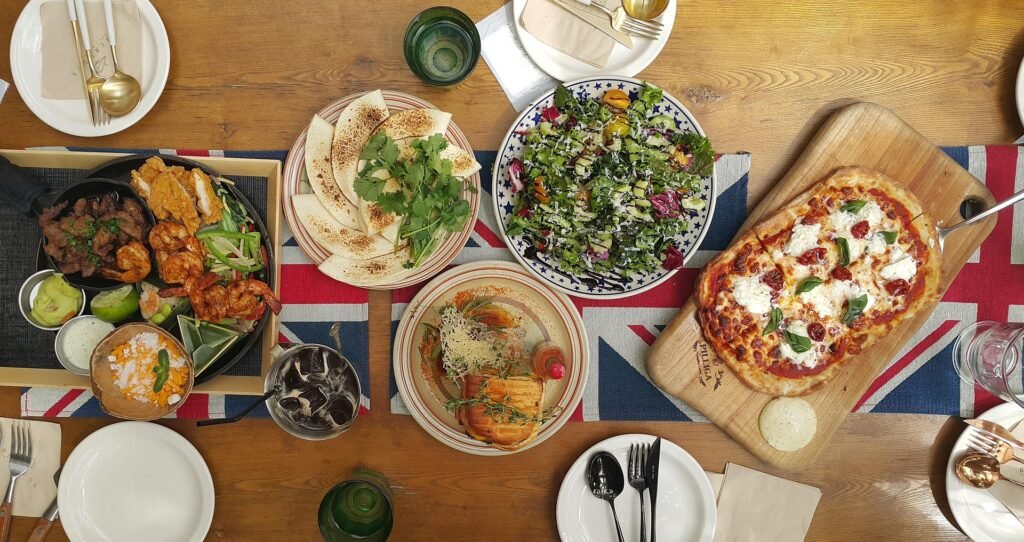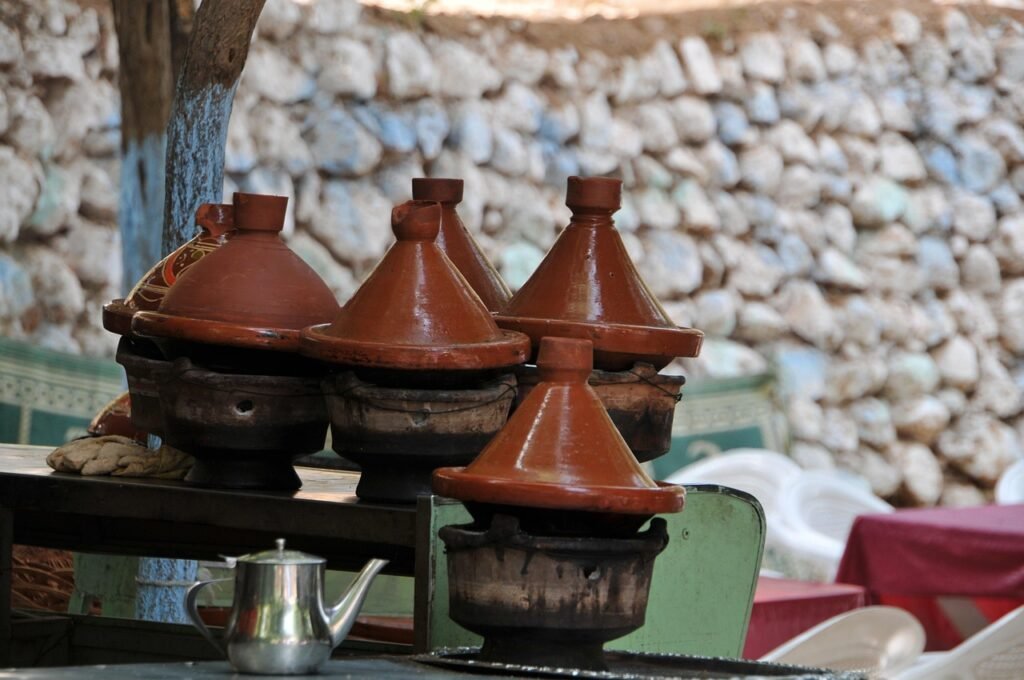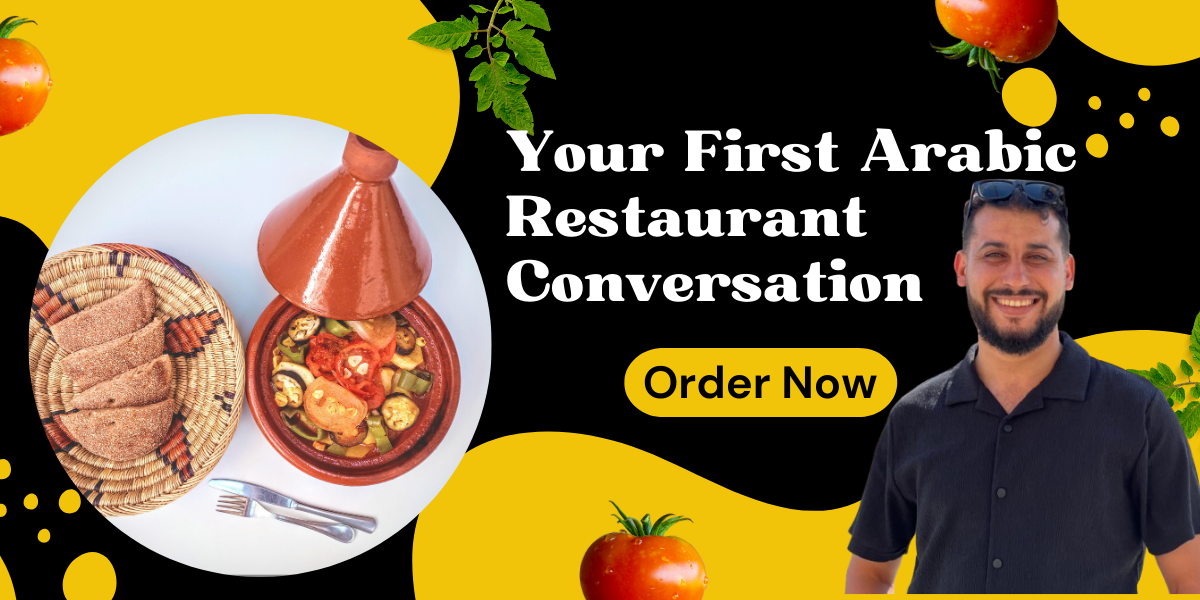How to Order Food at a Restaurant in Arabic 2026
Traveling or living in an Arabic-speaking country is exciting, but it can also feel challenging when you want to do simple things like order food. Eating out is one of the first situations where you must speak to locals. You sit down, the waiter comes, and suddenly you realize you don’t know how to ask for the menu, how to order, or even how to ask for water politely.
Many Arabic learners feel shy in this moment. They worry about making mistakes or not understanding what the waiter says. Some avoid speaking Arabic altogether and just point to items on the menu. But this is a missed opportunity. Ordering food is one of the easiest and most practical ways to practice your Arabic. You are in a safe environment, the phrases are predictable, and you get instant feedback when the waiter brings what you asked for.
This article will help you build the confidence to order food in Arabic step by step. You will learn how to greet the waiter, ask for the menu, understand basic food vocabulary, and place your order clearly. You will also see useful phrases for asking questions, making special requests, and asking for the bill. By the time you finish reading, you will feel ready to walk into a restaurant and speak Arabic without hesitation.
Ordering food is not just about language. It is also about culture. Every Arab country has its own style of hospitality, its own words for dishes, and its own dining customs. Learning how to handle this situation will make your travels smoother and show locals that you respect their culture.
Part 1 – Greetings and Asking for the Menu
When you walk into a restaurant in an Arabic-speaking country, the first thing you should do is greet the staff. Greetings are very important in Arabic culture. They set the tone for the whole interaction and show respect.
The most common greeting is:
السلام عليكم (as-salāmu ʿalaykum) – Peace be upon you
You will hear the waiter reply with:
وعليكم السلام (wa ʿalaykum as-salām) – And peace be upon you
This short exchange is polite and friendly. If you want something simpler, you can just say:
مرحبا (marḥabā) – Hello
أهلا (ahlan) – Hi / Welcome
Once you are seated, you need to ask for the menu. There are two common ways to do this:
من فضلك القائمة (min faḍlik al-qāʾima) – The menu, please
ممكن أشوف القائمة؟ (mumkin ashūf al-qāʾima?) – Can I see the menu?
The phrase من فضلك (min faḍlik) means “please” and is very common in daily conversation. Use it whenever you make a request.
If you are in a country where dialects are common, you might hear or use slightly different forms. For example:
In Egypt: ممكن المنيو لو سمحت؟ (mumkin el-menu law samaḥt?)
In Morocco: عافاك القائمة (ʿafāk al-qāʾima)
Using local words like عافاك (ʿafāk – please, in Morocco) makes the experience more natural and locals will appreciate the effort.
After you get the menu, take your time. In many Arab countries, eating is a social activity and nobody will rush you. It’s common to chat for a few minutes before even looking at the menu. If you need more time, you can tell the waiter:
أحتاج دقيقة من فضلك (aḥtāj daqīqa min faḍlik) – I need a minute, please
If you are ready to order, get the waiter’s attention politely by saying:
لو سمحت (law samaḥt) – Excuse me
This is a very useful phrase. You can use it in many situations, not just in restaurants.
Key Words for Part 1
السلام عليكم – Peace be upon you
مرحبا – Hello
من فضلك – Please
القائمة – Menu
لو سمحت – Excuse me
ممكن – Can I / Is it possible
Mastering this first step will make you feel comfortable from the moment you walk into the restaurant. The greetings and polite requests you use here will make the waiter more patient and friendly, and this will make the rest of the experience much easier.

Part 2 – Understanding the Menu and Basic Food Vocabulary
Once you have the menu in your hands, the next step is understanding what you are looking at. Many restaurants in large cities have menus in both Arabic and English, but in small towns or traditional restaurants you may only see Arabic. Learning the most common food words will help you read the menu and avoid surprises.
Start with the basics:
Common Food Words
- لحم (laḥm) – meat
- دجاج (dajāj) – chicken
- سمك (samak) – fish
- خروف (kharūf) – lamb
- خضار (khuḍār) – vegetables
- أرز (aruzz) – rice
- بطاطا (baṭāṭā) – potatoes
- خبز (khubz) – bread
- جبن (jubn) – cheese
- بيض (bayḍ) – eggs
Knowing these words will help you understand most main dishes. You should also learn common cooking methods, since menus often describe how the dish is prepared.
Cooking Methods
- مشوي (mashwī) – grilled
- مقلي (maqlī) – fried
- مطبوخ (maṭbūkh) – cooked
- بالفرن (bil-furn) – baked
- مع صلصة (maʿ ṣalṣa) – with sauce
When you combine food words with cooking methods, you can understand the dish. For example:
- دجاج مشوي (dajāj mashwī) – grilled chicken
- سمك مقلي (samak maqlī) – fried fish
- خروف مطبوخ بالخضار (kharūf maṭbūkh bil-khuḍār) – lamb cooked with vegetables
Drinks
Drinks are just as important, especially in hot countries. Here are common words:
- ماء (māʾ) – water
- شاي (shāy) – tea
- قهوة (qahwa) – coffee
- عصير (ʿaṣīr) – juice
- حليب (ḥalīb) – milk
- مشروب غازي (mashrūb ghāzī) – soft drink
You might want to ask for something cold. You can say:
- ماء بارد (māʾ bārid) – cold water
- عصير بارد (ʿaṣīr bārid) – cold juice
Dietary Restrictions
If you have special needs, learn to explain them clearly.
- أنا لا آكل لحم الخنزير (anā lā ākul laḥm al-khinzīr) – I don’t eat pork
- أنا نباتي (anā nabātī) – I’m vegetarian
- بدون لحم من فضلك (bidūn laḥm min faḍlik) – Without meat, please
Key Words for Part 2
- لحم – Meat
- دجاج – Chicken
- مشوي – Grilled
- مقلي – Fried
- ماء – Water
- شاي – Tea
- بدون – Without
Spending a few minutes memorizing these words will make you feel more in control when looking at a menu. You won’t need to guess or just choose something at random. You will know exactly what you are ordering, which makes the experience much more enjoyable.

Part 3 – Placing Your Order
Once you understand the menu, it is time to tell the waiter what you want. This is the most important step because it uses full sentences and real communication.
Getting the Waiter’s Attention
When you are ready, politely call the waiter. You can say:
- لو سمحت (law samaḥt) – Excuse me
- من فضلك (min faḍlik) – Please
In busy restaurants, you may see people raise their hand slightly or nod, but always combine this with polite words.
Simple Sentences to Order
You can use these sentences to order your meal:
- أريد دجاج مشوي (urīd dajāj mashwī) – I want grilled chicken
- أطلب بيتزا (aṭlub bītza) – I order pizza
- أعطني سلطة (aʿṭinī salaṭa) – Give me a salad
- من فضلك سمك مقلي (min faḍlik samak maqlī) – Fried fish, please
If you are ordering for more than one person, point to each person and say:
- له (lahu) – for him
- لها (lahā) – for her
- لي (lī) – for me
Example:
- له كباب ولها شوربة ولي سلطة
(lahu kabāb, lahā shūrba, lī salaṭa)
– Kebab for him, soup for her, salad for me
Ordering Drinks
Add drinks after you order food:
- ماء بارد من فضلك (māʾ bārid min faḍlik) – Cold water, please
- شاي بالنعناع (shāy bil-naʿnāʿ) – Tea with mint
- قهوة عربية (qahwa ʿarabiyya) – Arabic coffee
Making the Order Softer
In Arabic, saying “I want” (أريد) is fine, but you can make it softer by using ممكن (mumkin – can I / may I).
- ممكن دجاج مشوي؟ (mumkin dajāj mashwī?) – Can I have grilled chicken?
- ممكن عصير برتقال؟ (mumkin ʿaṣīr burtuqāl?) – Can I have orange juice?
This sounds polite and natural.
Asking for Recommendations
If you are unsure what to order, ask the waiter:
- ماذا تنصح؟ (mādhā tanṣaḥ?) – What do you recommend?
- ما أفضل طبق عندكم؟ (mā afḍal ṭabaq ʿindakum?) – What is your best dish?
Waiters often enjoy answering this question and might suggest a popular local specialty.
Key Words for Part 3
- أريد – I want
- ممكن – Can I
- أعطني – Give me
- ماذا تنصح؟ – What do you recommend?
- له / لها / لي – For him / for her / for me
Placing an order is a great chance to practice speaking in full sentences. The more you do it, the more natural it feels. Even if you make mistakes, the waiter will usually understand and appreciate your effort.
Part 4 – During the Meal and Asking for the Bill
Ordering is only the first step. During the meal, you may need to talk to the waiter again. You might want extra bread, more water, or to ask a question about the dish. This part is simple but important because it keeps the conversation going in Arabic.
Asking Questions During the Meal
If you are not sure about something, use these short questions:
- هل هذا حار؟ (hal hādhā ḥār?) – Is this spicy?
- هل فيه مكسرات؟ (hal fīh mukassarāt?) – Does it have nuts?
- هل هو كبير؟ (hal huwa kabīr?) – Is it big?
- ماذا فيه؟ (mādhā fīh?) – What’s in it?
If the food is too spicy or salty, you can politely say:
- حار قليلا (ḥār qalīlan) – It’s a bit spicy
- مالح قليلا (māliḥ qalīlan) – It’s a bit salty
You can also ask for more of something:
- ممكن خبز إضافي؟ (mumkin khubz iḍāfī?) – Can I have more bread?
- ماء آخر من فضلك (māʾ ākhir min faḍlik) – Another water, please
Waiter Check-Ins
In many restaurants, the waiter will come to check if everything is okay. You may hear:
- كل شيء جيد؟ (kul shayʾ jayid?) – Is everything good?
You can answer:
- نعم شكرا (naʿam shukran) – Yes, thank you
- ممتاز (mumtāz) – Excellent
Asking for the Bill
When you finish eating, you will need to ask for the bill. The most common phrase is:
- الحساب من فضلك (al-ḥisāb min faḍlik) – The bill, please
If you want to pay separately, you can say:
- ممكن ندفع كل واحد لوحده؟ (mumkin nadfaʿ kul wāḥid liwaḥdih?) – Can we pay separately?
If you want to pay by card, ask:
- هل تقبلون الدفع بالبطاقة؟ (hal taqbalūn ad-dafʿ bil-biṭāqa?) – Do you accept card payment?
When you give the payment, thank the waiter:
- شكرا جزيلا (shukran jazīlan) – Thank you very much
Key Words for Part 4
- الحساب – The bill
- ممكن – Can I
- آخر – Another
- هل هذا حار؟ – Is this spicy?
- كل شيء جيد؟ – Is everything good?
Mastering these phrases helps you stay confident until the end of the meal. You will be able to handle questions, make requests, and leave the restaurant politely, which leaves a good impression on the staff.

Final Advice
Ordering food in Arabic is one of the simplest but most powerful ways to practice the language. You greet the waiter, ask for the menu, read a few words, place your order, and then ask for the bill. These are short sentences, but they build your confidence and make you feel connected to the culture.
Practical Advice
- Practice greetings first. Say السلام عليكم and مرحبا until they feel natural.
- Learn ten basic food words like دجاج, سمك, أرز, خبز, and شاي. These appear on almost every menu.
- Use من فضلك and لو سمحت often. Politeness is key in Arabic-speaking countries.
- When unsure, ask ماذا تنصح؟ and try the local dish. This shows curiosity and respect.
- Don’t be afraid to make mistakes. Most waiters will be patient and happy to help.
Even small steps matter. The first time you order in Arabic, you may feel nervous, but with practice, you will enjoy it. Every meal becomes a short lesson, and soon you will be comfortable ordering anywhere.
Cultural Value
Eating is a social event in most Arab countries. People take time to talk, share food, and enjoy the moment. When you order in Arabic, you do more than ask for food. You take part in this culture. You show locals that you are learning and that you care about their language. This often leads to friendly conversations and new connections.
Learn More with Ramdani Arabic Academy
If you want to go further, explore our lessons at Ramdani Arabic Academy. We focus on real-life Arabic, not just grammar rules. Our courses teach you how to speak in restaurants, markets, airports, and daily situations. You will find articles, videos, and exercises that help you practice step by step.
Our goal is simple: to help Arabic learners around the world speak with confidence. Whether you are a beginner or already know some Arabic, we give you the tools to improve faster.
Visit our website, choose a free article to read, and try one of our beginner-friendly lessons today.
About the Author
Ramdani Mohamed is the founder of Ramdani Arabic Academy, an online platform for learners worldwide. He teaches Arabic through practical examples and focuses on communication skills that students can use in real life. His mission is to make Arabic learning clear, simple, and enjoyable for everyone.
Browse and watch our Arabic videos to practice anytime.







